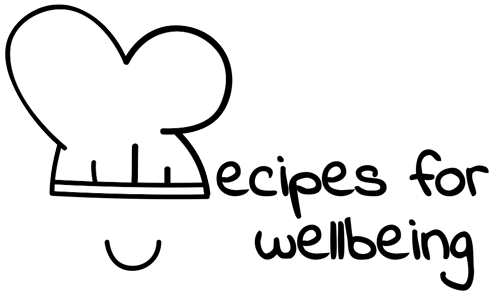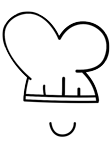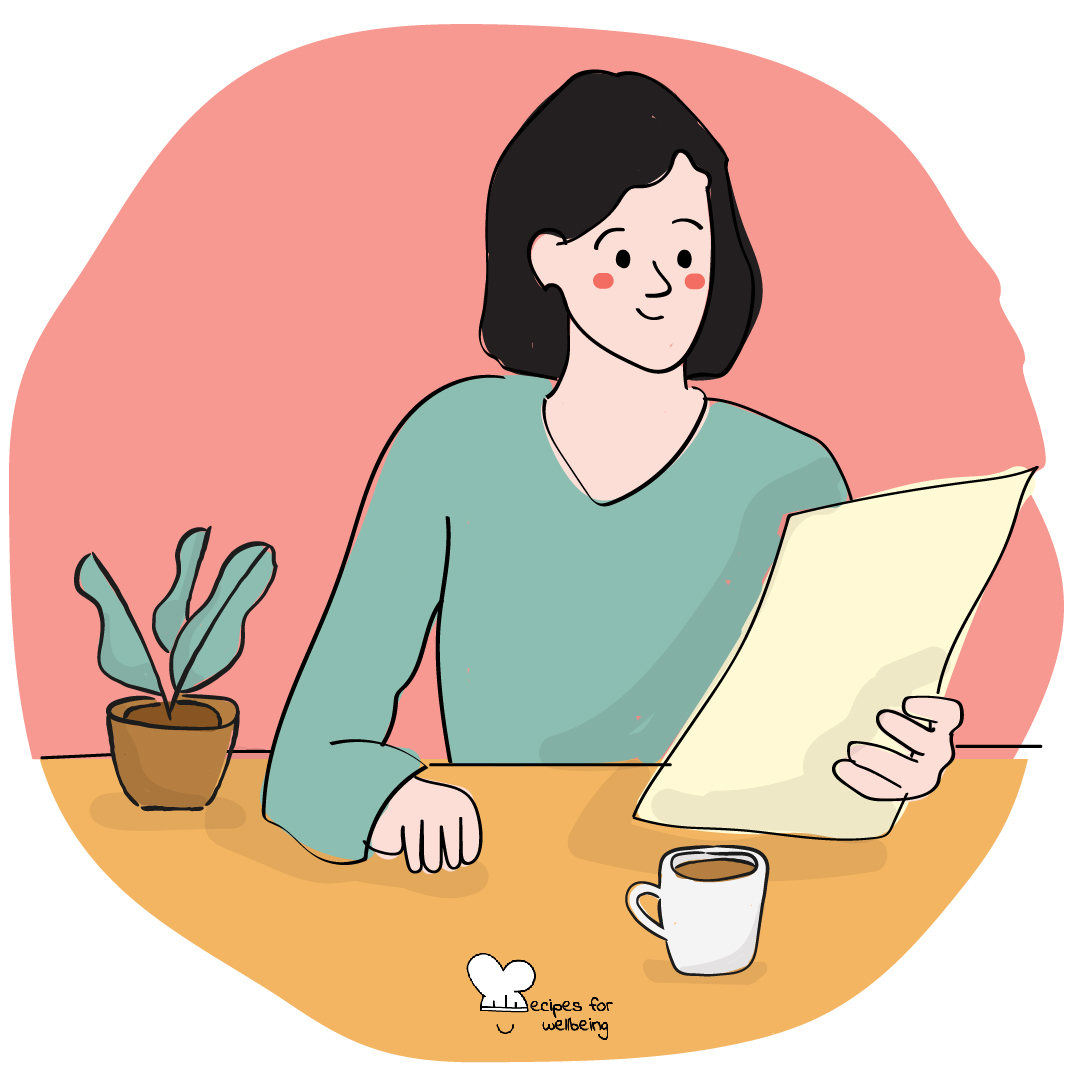
2020 in Review: From Badbeing to Wellbeing
As the end of the year approaches fast (finally!), many are sharing their reviews of 2020, like the Guardian calling it “the lost year” (check out Jonathan Freeland’s long read “The magnifying glass: how Covid revealed the truth about our world”). We are no journalists at Recipes for Wellbeing and we are still trying to make sense of everything that’s happened (and not happened), but we would like to share some of our insights from 2020 from a wellbeing perspective. We hope you enjoy reading the words of the three co-founders of Recipes for Wellbeing, as we share our personal reflections across the different dimensions of our holistic wellbeing model: mental, physical, emotional, spiritual, and of course, digital wellbeing. And if you can’t get enough, check out our 2020 impact report!
Mental wellbeing in 2020 (by Greta Rossi)
It’s 3:30am and I’m wide awake. What should I do? I tried to quieten my mind by practicing mindfulness meditation and it has helped, but I’m still wide awake. I could stay here in bed, turning left and right, ruminating over the fact that I’m wide awake and that I’ve got an intense day ahead of me… or I could just turn on my laptop and do some work until tiredness kicks in. Maybe reading this comes as a surprise to you – “Wait, isn’t she supposed to be all healthy in her work–life balance?” – or maybe you have experienced something similar this year and understand what I am talking about. Truth is, I am pretty satisfied with my work–life balance and all my wellbeing routines, and still, it has happened quite a few times that I’ve found myself wide awake in the middle of the night, especially during the long weeks of lockdown experienced all by myself.

The strategy that works best for me (at least right now) is to wake up, turn on the laptop, get some work done, go back to bed, and then take a few extra hours off during the day. You might have used different strategies to cope with your episodes of stress, anxiety, mental exhaustion, etc. but for some of you, these episodes have been pretty bad this year. I hear you: there are so many layers this crisis – there’s the worry about the risks the virus poses on your health, the fear of losing the means to sustain yourself, the lack of freedom, the boredom of quarantine, the increased digital anxiety, the impossibility to process grief with your loved ones… There are so many complex and difficult feelings you are experiencing this year and we found that it is important to make space for them and to treat yourself with kindness and compassion as you process everything. If you are concerned about your own or someone else’s mental ill-health, here are three practices that might be of help: “Coping with panic attacks”, “Stress diary”, and “Dealing with others’ suffering”.
Physical wellbeing in 2020 (by Alessia Cervone)
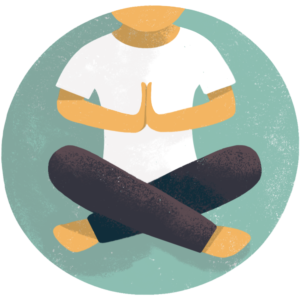
Think of exercising routines, eating habits, and sleep patterns. The wellbeing of your body is partly influenced by the environment you inhabit: think about the difference between people with gardens who managed to exercise outdoors even with the strictest of lockdowns imposed versus people living in tiny city flats, sometimes shared with others, without the possibility of going out and breathing some fresh air. Some of you responded by signing up for all possible online fitness classes (online classes have become common, even though I personally find it hard to follow without the peer-motivation), whereas others opted for becoming couch potatoes and doing little or no exercise. When it comes to food, you might have been forced to cook more and I must say I really enjoyed learning to cook new dishes from my home tradition and challenging myself to eat well when staying at home. However, maintaining a healthy diet has not been easy as there are studies emerging that report an increase in alcohol consumption to cope with the emotional burden of the pandemic. As Greta shared earlier, your sleep pattern might have been impacted too, with stress and anxiety keeping you up at night and leaving you feeling tired and exhausted during the day. Finally, you should not underestimate the long-lasting impact on physical wellbeing for those who had COVID-19 – from headaches to chronic fatigue months after having recovered from it.
2020 has taught humanity the importance of staying healthy. As we say in my hometown “without health there is nothing else” and this year more than ever I would like to invite you to raise a toast to the immense regenerative and healing power of your body and to your physical wellbeing. And to accompany this toast, here are three wellbeing recipes to boost your physical wellbeing: “Gentle morning flow”, “CBT strategies to help you sleep”, and “Mindful eating”.
Emotional wellbeing in 2020 (by Alessia Cervone)
2020 has put a lot of pressure not just on your mind and body, but also on your heart. I love hugging my family and friends, shaking hands with someone I just met, crying (literally) on a friend’s shoulder, throwing a big party for a birthday or a wedding. Apart from a few brief lapses when life seemed to have resumed some sort of fragile “normality”, most of you had to pause all your social behaviours and habits. I had to reinvent the way in which I connect with my family and friends all over the world. Though I am very grateful for all the advances in digital technologies and online communication platforms, I must admit they didn’t meet all my heart’s needs and desires. This year reminded me that there is nothing more beautiful than the hug of a friend, but it also taught me that it is possible to create beautiful online spaces for deep and meaningful connections. And if you’re curious to find out how, I invite you to check out the following three wellbeing recipes on our website: “House of Wellbeing”, “36 Qs to increase closeness”, and “Unlimited empathy”.
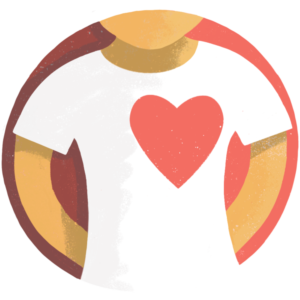
Spiritual wellbeing in 2020 (by Tariq Al-Olaimy)
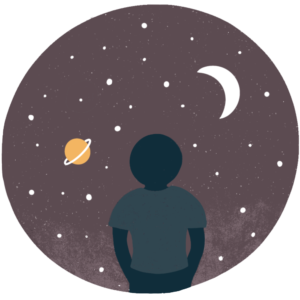
2020 caught our global community struggling with three pressing and interconnected crises of breath:
- We face a crisis of breath in the novel coronavirus, a global respiratory disease.
- We also face a crisis of breath in the cry for racial justice, exemplified by the tragic and brutal murder of George Floyd (may his memory be a blessing) whose last words were, “I can’t breathe”.
- And we face a continued crisis of breath represented in the climate crisis. Wildfires around the world – from North America, the Amazon, Southern Africa, and parts of Australia drove fellow humans and other living beings to seek refuge for their safety and to be able to simply breathe air that wouldn’t suffocate them.
To deal with these crises you, I, and we together, must come from a place of spiritual wholeness and wholbeing, nurturing a strong connection with our unique and deepest identity, as well as with the larger consciousness that animates the cosmos and everything in it. Whether through faith or non-faith based spaces, we often nurture our spiritual wholeness in community. My personal spiritual practices have long involved collective prayer, the chanting of divine names, ceremonies and everyday rituals – and the pandemic has deepened my longing to be in these community spaces again.
In a year of solitude and physical separation, you might not have been able to bow in the mosque, kneel in the temple, pray in the church, or co-create in the retreat, to paraphrase Khalil Gibran, so we invite you to find that guidance within. Renowned author and activist Parker Palmer reminds us of this delicate balance in finding the spaces between solitude and togetherness:
Solitude does not necessarily mean living apart from others; rather, it means never living apart from one’s self. It is not about the absence of other people – it is about being fully present to ourselves, whether or not we are with others. Community does not necessarily mean living face-to-face with others; rather, it means never losing the awareness that we are connected to each other. It is not about the presence of other people – it is about being fully open to the reality of relationships, whether or not we are alone.
As we slowly emerge from our collective solitude and quarantine hermitage, my personal and collective hope is that we may be fully present to our deepest spiritual identity, and the whole that we are connected to – and from finding that deep inward breath, may we act accordingly in the external world to address the intersecting crises of breath we face.
Digital wellbeing in 2020 (by Tariq Al-Olaimy)
We started exploring the concept of digital wellbeing back in 2018 in collaboration with Google but it wasn’t until the COVID-19 pandemic broke out that many changemakers and organisations realised how digital wellbeing was not really on their radar. If on the one hand digital technologies have allowed you to survive – and even thrive – through this crisis, on the other hand they have had a negative impact on your wellbeing. Think of the constant notifications you receive, the endless voices that request your attention, the anxiety derived from the endless refreshing to hear the latest COVID-19 updates. Technology is a double edged sword and digital wellbeing is about getting the benefits of technology without the unwanted distractions or drawbacks.
We have discovered that this year has been the most challenging to find that right balance – personally, there have been too many weeks of relentless full days of back-to-back online calls. As we as a team have been experiencing what it means to adjust to a changing digital reality, we have also continued to refine and share our learnings. We are happy to have delivered 5 public speeches and facilitated 10 workshops on this very topic of digital wellbeing for changemakers and organisations all over the world in the past year. And at the same time, we have used this experience to reflect on our own digital consumption and use of social media tools as a team and an organisation. Being honest with ourselves, creating content for regular posts and stories on platforms that have taken humanity further away from our deepest spiritual wholeness no longer serves our team wellbeing, nor the communities we aim to support. We know we can do better than to continue to share our deepest truths to a divisive algorithmic abyss.
Read on to find out how we seek to engage with the online world in 2021.
Wellbeing Manifesto for 2021
One thing that has been true about our team from the beginning is that we are not afraid of exploring new paths and experimenting with new formats and activities. As soon as it became clear that we would have been unable to host in-person wellbeing retreats in 2020, we adapted our format and started to facilitate compassionate and nourishing online wellbeing huddles for changemakers and their teams, reaching over 750 people this year, more than ever before. With the same spirit, looking at 2021, we are curious to engage with the following three digital practices:
- Purposeful withdrawal: Whilst it is necessary to be hyper-present in the world, it is also necessary to withdraw and unplug, so that when we are present, we are doing so with complete intentionality. For this reason, we will be taking extended fasts in 2021 from our social media channels, so that we may pause and reset our intentions for how we engage in these digital spaces.
- Meaningful engagement: Whenever we choose to engage digitally, we aim to do so meaningfully in a way that nourishes both our team and the communities we serve. So we will continue to enlarge (and increase the accessibility of) our online library, which now features 145 wellbeing recipes. And we will continue to partner with fellow changemaker communities to share our reflections on wellbeing and to facilitate wellbeing-infused online huddles and workshops.
- Conscious consumption: Finally, when we do engage digitally, we strive to do so in a way that respects our boundaries. In all that we consume and produce, we hope to do it in a way that brings liberation, rather than to enslave us to the algorithms that are increasingly, and unconsciously, shaping our lives.
Ali Ibn Abi Talib (As) reminds us that “detachment is not that you should own nothing, but that nothing should own you”. This is our wellbeing manifesto for 2021 and we hope you will join us on this collective journey towards wellbeing.
Alessia, Greta, and Tariq
Co-founders of Recipes for Wellbeing
P.S.: Are you looking for end-of-year activities to bring 2020 to a close and embrace 2021? Check out the following wellbeing recipes: “End-of-year reflection”, “End-of-year spell casting”, “Year Compass”, and “New Year’s Manifesto”.
